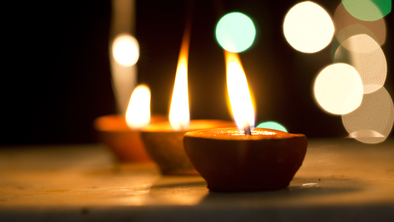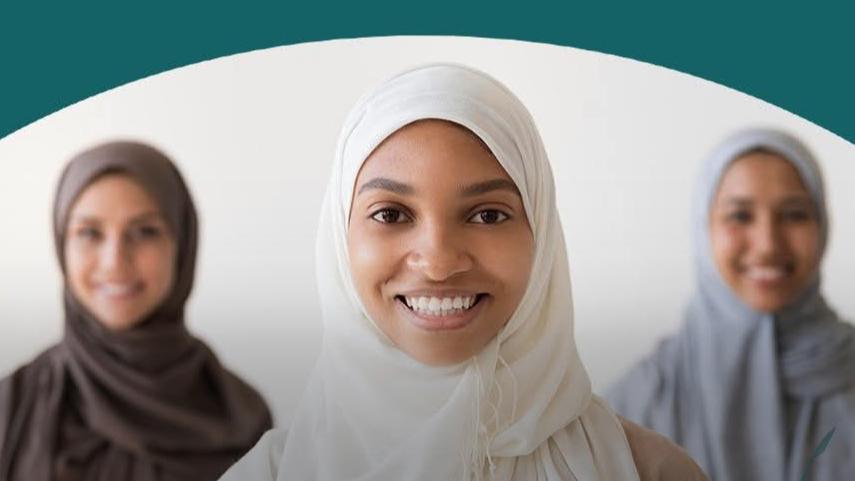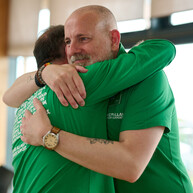Navigating fasting during Ramadan for cancer patients: a guide to spiritual and medical considerations
We spoke with Shaykh Mustafa Hussein from Green Lane Masjid, who explains about Ramadan, how to stay healthy during Ramadan while fasting and what exemptions and alternatives to fasting are accepted.
Ramadan is a sacred month for Muslims worldwide, marked by fasting, prayer, and acts of charity. For those living with cancer or other chronic illnesses, fasting can present unique challenges.
We hope this information can help answer some questions if you, or someone you know, is having treatment for cancer during Ramadan. It may also be useful for healthcare professionals to talk about Ramadan with Muslim patients.
What is Ramadan?
Ramadan is the ninth month of the Islamic lunar calendar, observed by Muslims as a time of fasting, prayer, reflection, and community. During this month, Muslims do not eat food or drink from dawn to sunset as an act of devotion to God. The dates of Ramadan change each year based on the lunar cycle.
In 2025, Ramadan is expected to begin around 1 March and end around 30 March.
The month is also marked by increased acts of worship, such as nightly prayers (Taraweeh), reading the Quran, and giving to charity. It is a time for spiritual growth, self-discipline, and empathy for those in need. Shaykh Mustafa added that “fasting trains you to be a more God conscious person.”
What does the Quran say about fasting if you are unwell?
Shaykh Mustafa further clarified, the Islamic principles support that, “[those unable to fast due to illness] should understand that their creator (God) understands [their circumstances] and it's understood that this person was on a journey of worship and devotion, and it's just external circumstances stopping them.
However, some individuals may still choose to fast despite their illness. This decision can be deeply personal. Some people may feel their spiritual health is more important. This might be specially for those with advanced cancer who may be thinking more about their afterlife. In this situation, it is important to talk to your healthcare team to find out more about how this may affect your health or the effectiveness of any treatment.
It’s important to acknowledge that deciding not to fast may bring up feelings of guilt or worry. You may feel less connected to your faith or be worried about disappointing others. Shaykh Mustafa explains that these feelings are understandable but wants to reassure anyone who is a Muslim and has a cancer diagnosis that “Your inability to fast does not diminish your spiritual standing.”
1. Is it okay to fast if I am having chemotherapy or other treatment for cancer?
It’s essential to talk with your healthcare team. You can let them know that you would like to fast, and your doctor or nurse can explain about any potential health risks.
2. Would taking medicines by mouth break my fast?
Yes, oral medications, including tablets, break the fast. Shaykh Mustafa explained, “while fasting you don't ingest anything. Water, food or medicine”. As some oral medicines need to be taken with food to make sure they work properly, talk to your doctor about this to help you make a decision about breaking your fast.
However, injections or treatments given as a drip (infusion) through a vein may not break your fast, depending on why they are being given. He further went on to say that “if the injection provides nutritional value, such as IV fluids, it would break the fast. But if it’s a vaccine, painkiller, or antibiotic, it would not.”
3. Are there things I can do to manage my energy levels while I am fasting?
Fasting during Ramadan can affect energy levels, especially for those having cancer treatments. Shaykh Mustafa recommended:
- Do not skip Suhoor (pre-dawn meal): This meal is essential for maintaining energy throughout the day.
- Eat nutritious meals: During Suhoor and Iftar (evening meal focus on foods that provide longer lasting energy. This includes protein-rich foods such as lean meat, poultry, fish, nuts, eggs and pulses (beans and lentils) and wholegrain carbohydrate foods, such as wholemeal bread, rice, pasta, noodles, couscous and potatoes.
- Pace yourself: Rest when needed. You may wish to use a chair instead of standing or kneeling during acts of worship.
For more tips on managing fatigue, visit Macmillan’s guide on tiredness and cancer. You may also find our healthy eating information of help. If you worried about losing weight, you may find our building up your diet information of help. It explains healthy ways to increase calories in your diet that may be helpful for your pre-dawn and evening meals.
4. What are things I can do if I am unable to fast?
If you are unable to fast, there are many other ways to observe Ramadan:
- Prayer and reflection: Engage in nightly prayers (Taraweeh), keep yourself busy in remembrance of Allah (Dhikr) or spend time reading or listening to the Quran. Shaykh Mustafa recommends families members of patients can support their loved one by “reading the Quran together, praying together.
- Charity: Give to those in need, either by providing meals or donating to charitable organizations that support and feed the less fortunate. Shaykh Mustafa mentions that if you have a chronic ongoing condition an alternative to fasting could be you feed one hungry person for every missed day of fasting. This may be one individual, or family that you're supporting for the month, or it could be 30 different individuals.
- Make up fasts later: If your condition improves, you can make up missed fasts at a later time but before the next Ramadan.
Shaykh Mustafa explains that “our connection with God is not limited to fasting. Focus on other acts of worship, such as prayer and charity, to maintain your spiritual connection.”
Having a diagnosis of cancer may affect your finances and mean that it is not always easy to donate. We have more information about money and work when you have a been diagnosed with cancer.
5. Who can I talk to about fasting?
- Religious leaders: Speak to your local Imam or mosque for spiritual guidance and support
- Healthcare team: Tell your doctor, nurse or dietician you would like to fast.
- Support services: Organisations like the British Islamic Medical Association (BIMA) and Macmillan Cancer Support can provide additional resources.
Tips for Healthcare Professionals
Non-Muslim healthcare providers can support their Muslim patients by:
- Asking open-ended questions: “How can we support you during Ramadan?”
- Respecting religious beliefs: Acknowledge the importance of fasting while emphasising the need to prioritise health.
- Collaborating with religious leaders: Encourage patients to seek guidance from their local mosque or Imam.
About our information
This information has been created in collaboration with Shaykh Mustafa Hussein and Dr Fatima Javed of Green Lane Masjid, along with Macmillan's Cancer Information Development team and revised and edited by the Digital Content Team.
Learn more about how we produce our cancer information.
Read more
-
Blogs 29 Apr 2025In this blog, we discuss ways people with cancer can get support to meet their spiritual needs and how to have conversations about your spirituality, religion and faith with your health care team.
-
Blogs 02 Jun 2025Learn more about Safeena, a Muslim-focused cancer support organisation founded in 2023. They are helping to provide culturally sensitive and faith-informed support for people affected by cancer.
-
Blogs 05 Jun 2025Find local cancer support services near you with our simple online search. From emotional support to practical help, get the support you need.
How we can help





